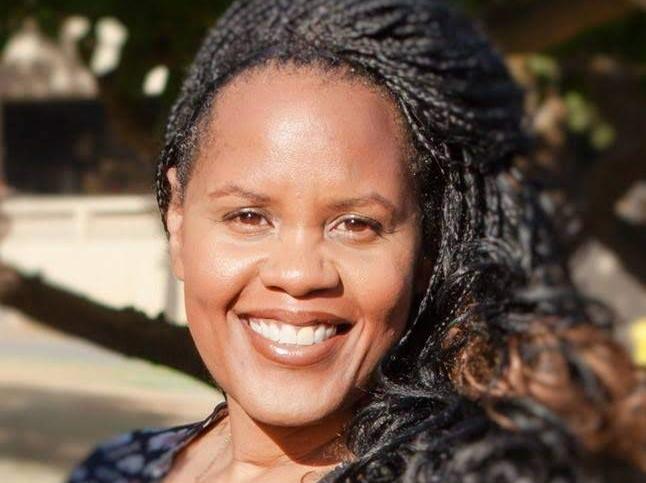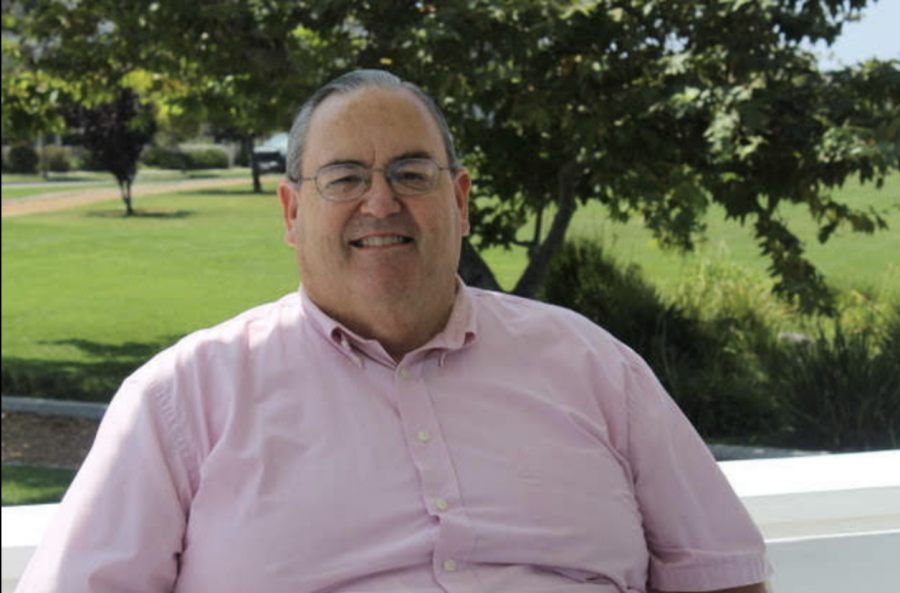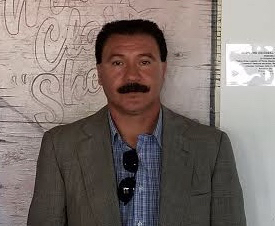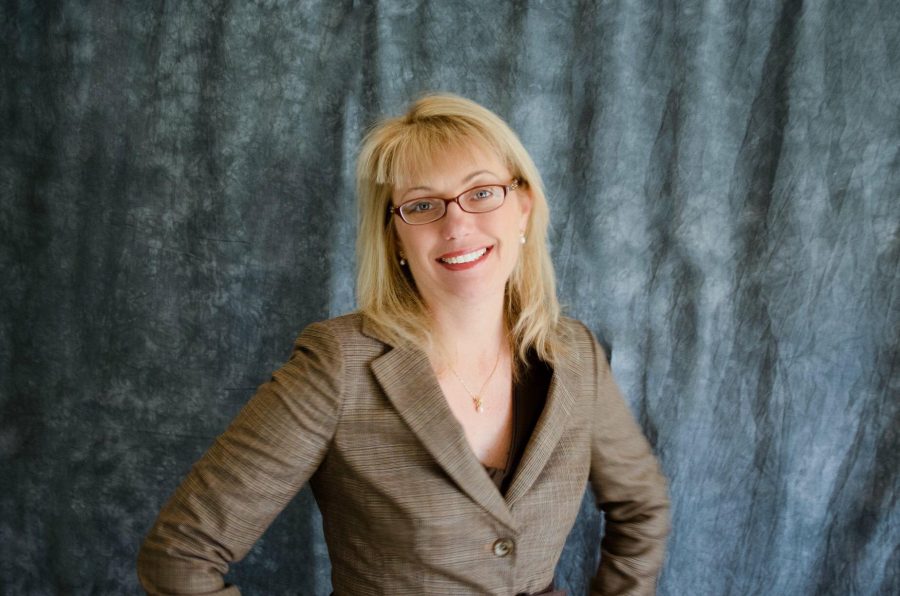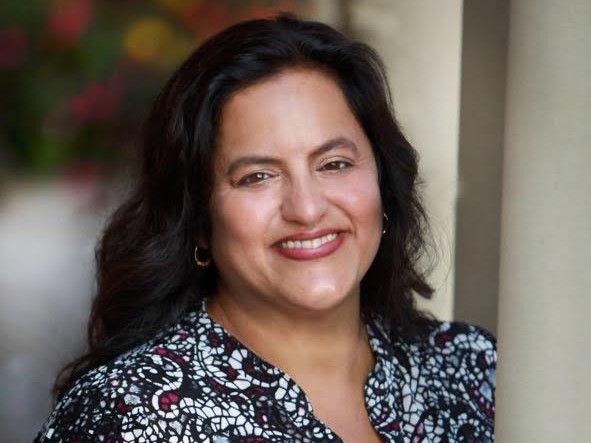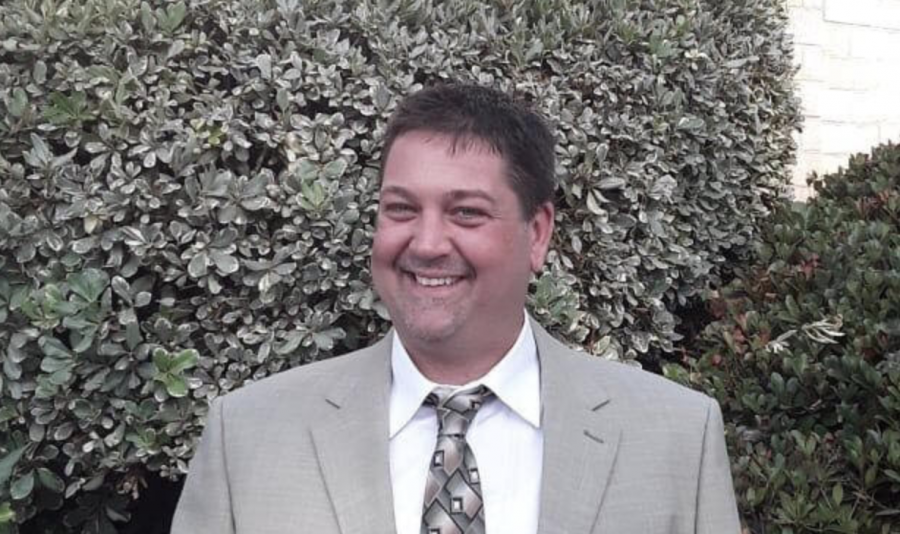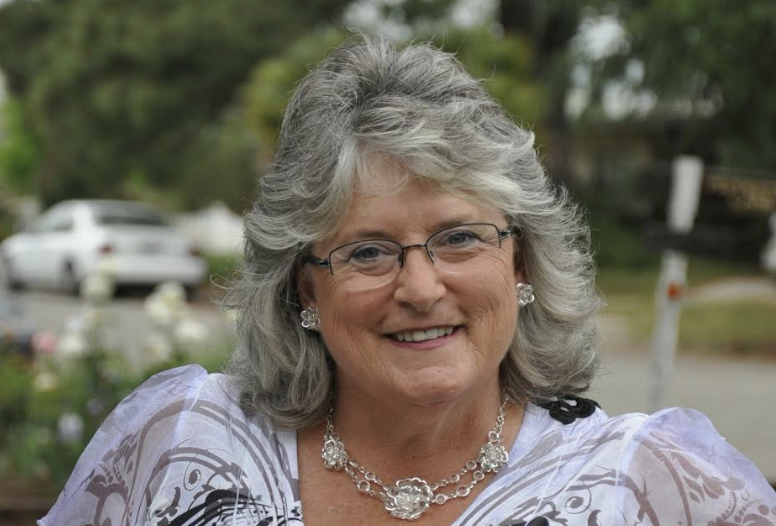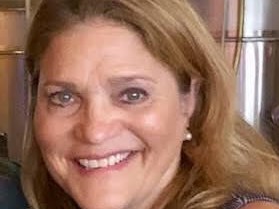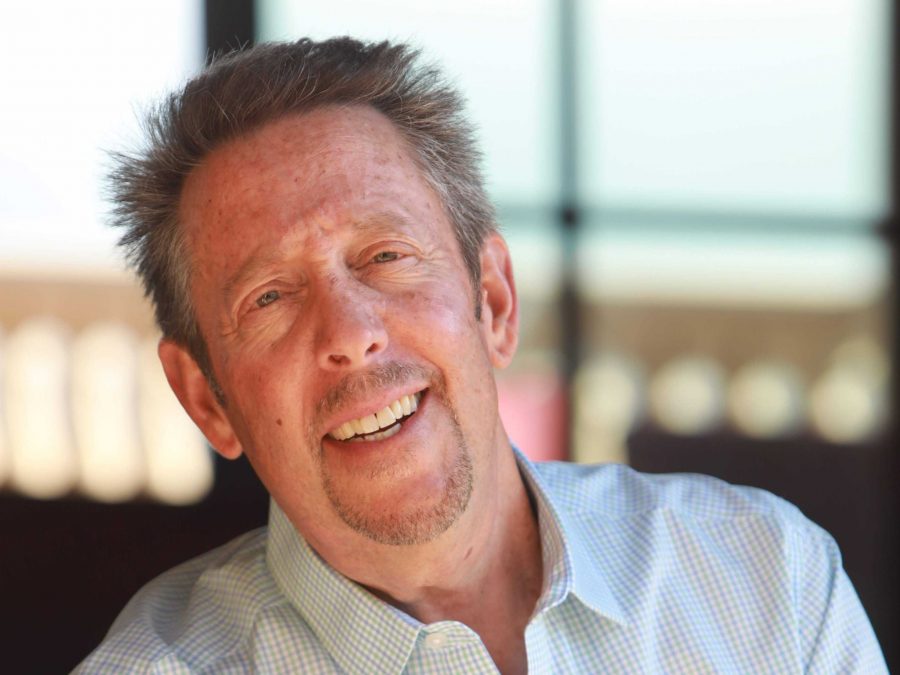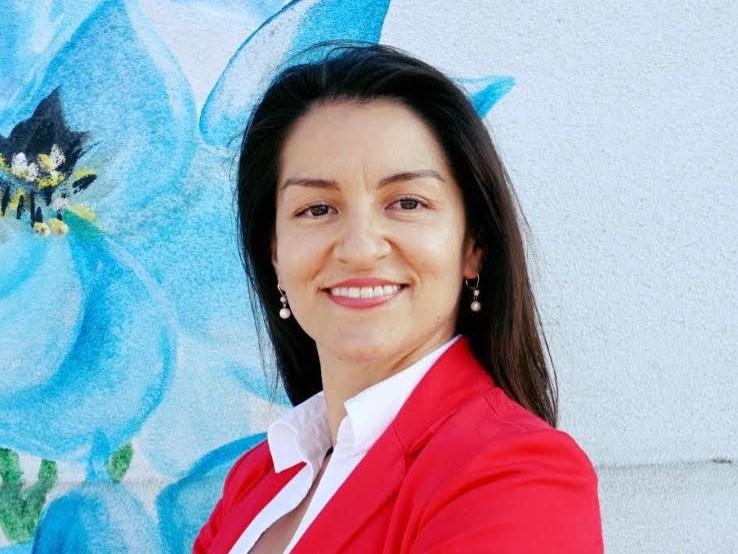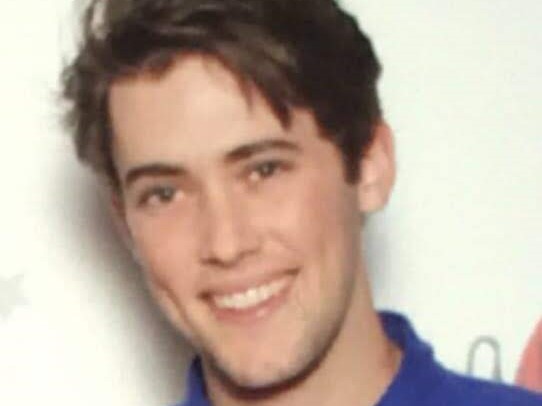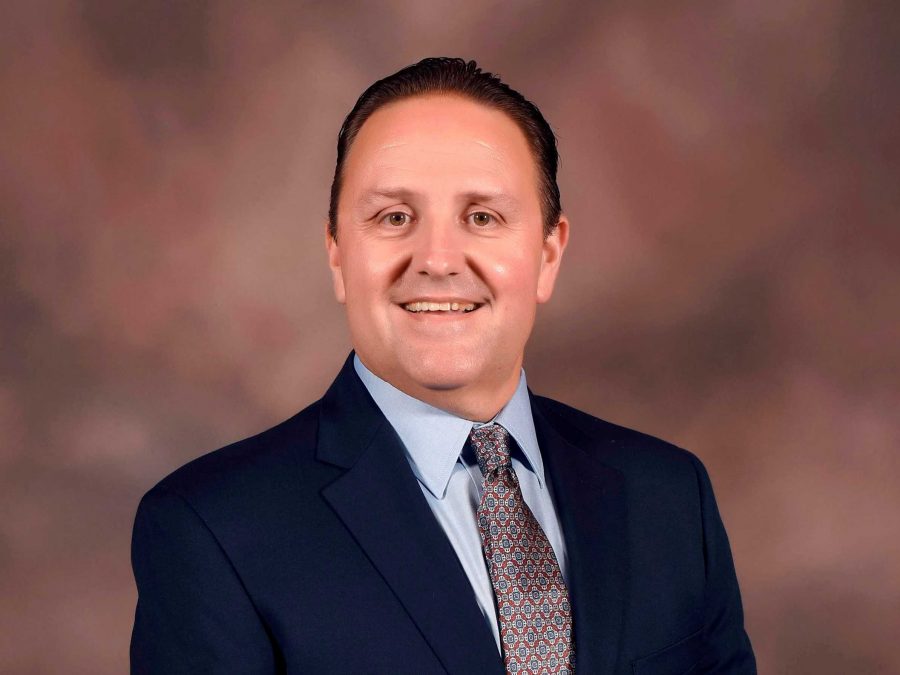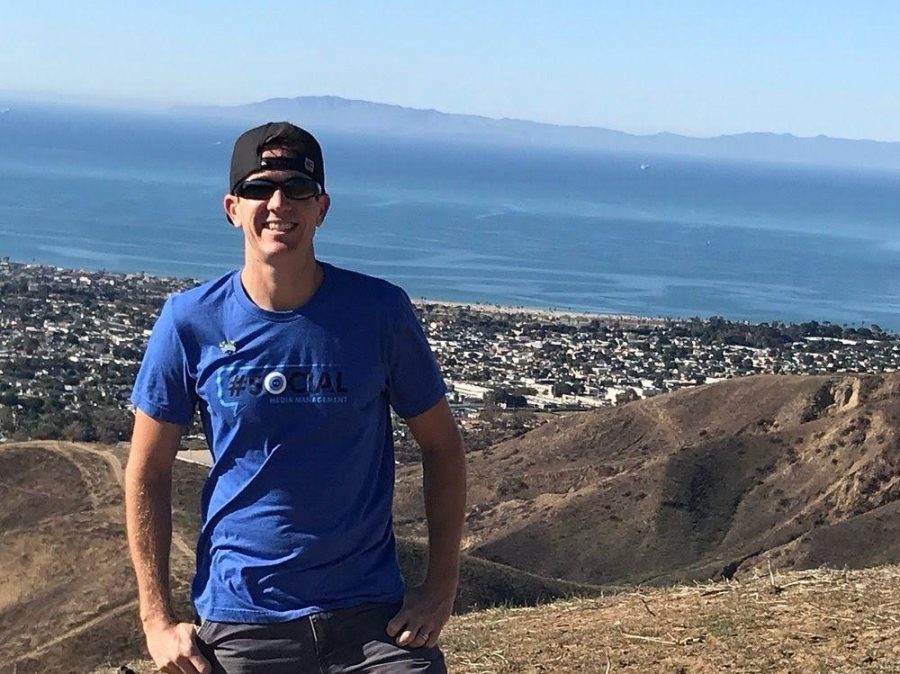INTERVIEWER: What’s your background as a Venturan?
LORRIE BROWN: So I was born and raised in the city of Ventura, born at Community Memorial Hospital. My mother moved here long before I was born, in the late 60s to live out here with my uncle. He was working in the military off Channel Islands as a painter. My mother decided to go to Ventura College and become a registered nurse. My father was an Air Force veteran. He went into the military, came back, they got married, started a family. And as many of you know, Ventura is an oil town. It was started on oil. My father worked for a union in ‘76 and for over 20 years and supported his family. That’s how I was able to be raised here. I was raised on the east side in the “bird tracks” so I was actually born and raised in the district that I’m running for right now and I always like to tell people that my parents were naturalists. They were very sensitive to the environment. Long before there were recycle bins that were blue and green, when they had one can,my mother was recycling plastic. My dad loves nature. He was always growing things in the backyard and taking us on camping trips and riding bikes and playing in Barranca Vista Park. I was always climbing trees. I was just a “tom boy.” I loved nature. My idea was to grow up and then have a ranch and have horses. I loved horses at the time. Bringing it full circle, I mentioned to you earlier that I was a substitute teacher for Ventura Unified School District last year and I really believe it’s important to have a person on the council who understands the youth in the community and some of the struggles and the needs that that community has. In addition to that, I’m a mother. I have three boys that graduated from Buena high school and I understand that it’s difficult to make a life here, especially when your parents have made a life here but once you go to college and you come back you want to be able to live here and find a place to live and have a job to support yourself and earn a livable wage. All those things that I’m talking about are issues of social justice. I have a social justice background. I don’t know if you’ve heard of the organization CAUSE, but I was a board member of CAUSE for three years, or a term. I am actually endorsed by the cause of action fund. They they have always fought for a livable wage for working families in the city of Ventura and that includes young families.
INTERVIEWER: Which measure on the ballot are you most passionate about and why should students and their families also support it?
BROWN: I haven’t really read much on the measures, but I have a very strong position on Proposition 6, which is a proposition that will fund a lot of our bridges and streets and roadway projects. What a lot of people don’t understand is – I’ll give a quick little history. My background is in economic development. I was a project management lead in a redevelopment agency for about six years and as a result I got to see firsthand how Proposition 13, way back in the day, affected cities. Although it protected homeowners, It also ended up protecting commercial building corporate owners. What that did is take away the revenue stream for the city to pay for city services like our police and our fire and potholes and streets and that causes a whole other issue, right? So, redevelopment agencies were established right soon after that in order to fill that gap. That was a way for local municipalities to raise local dollars to pay for city services. As you may or may not know, Governor Brown into 2011 eliminated redevelopment agencies. That left cities holding the back. It left it where cities knew they had a possibility of going bankrupt and that’s where we are today. You have cities that are struggling and that’s why the current city leadership made a hard decision and asked to pass Measure O which was an additional sales tax in order to pay for city services. That has helped, but it’s like a Band-Aid.It’s only going to last for another five or 10 years. After that, we’re back in the same situation. I think it’s important to have a councilmember who’s going to be there because right now the City Council is going to start updating the general plan. The general plan is a zoning document. I call it a “social zoning document” because it’s telling the whole city where you can live, who can live there, if it’s a residential area, if it’s an industrial area, what type of residentials is it R1, R2, R3, or R4, what the density is – so can you put a whole whole huge apartment building here or can you not – how high can that building be. What I think is important to focus on: traffic impact studies.Currently, there are a lot of projects that are happening without them, and I feel like that’s a safety issue, especially when you’re talking about Montalvo. Anyway, getting back to the proposition, I’m saying “no” to Proposition 6 to protect our projects. In my district, it’s Montalvo, the Government Center, and Kimball Park. I always say my district is shaped like an L for Lorrie. One of the projects in Montalvo that has been approved is to get sidewalks because it previously was an area of the city that was unincorporated which is now annexed. Before they didn’t have sidewalks, they didn’t have water pipes and all that. One of the projects that would be axed if Proposition 6 passes, there would be no sidewalks in Montalvo, but that’s only one of more than 20 projects around the city that would benefit transportation. So, I’m telling everyone vote “no” on proposition six.
INTERVIEWER: Two state propositions that would likely prove to be significantly impactful if passed in the election are Prop 2 and Prop 12. Do you support either, both, or neither of these measures? Why?
BROWN: I’m not as familiar with these propositions. [opted to skip as to avoid a misinformed comment]
INTERVIEWER: How do you plan to strengthen the partnership between the school district and the city, and involve more students in local government?
BROWN: I already have good relationships with the school board. I was endorsed by two current sitting school board members that Sabrena Rodriguez and Jackie Moran and they’re both really dynamic, wonderful, ladies in the district. Not only are they women, but they’re sensitive to issues to underrepresented communities within the education community in the district and I think that’s important. I had a really good conversation with Jackie Moran about that and she’s really passionate about a lot of those issues. I believe that relationships are where everything starts. In addition to that, my son, who is now a United States Marine stationed in Okinawa, went through Velma Lomax’s robotics class. Although I don’t have a direct relationship with her, I still have an indirect relationship with her and she loved and respected my son. I have a broad understanding of how the school district works having been a substitute teacher and having been a parent advocate, having spoken at school board meetings. There’s been a lot of controversial things happening in the schools in the last three to four years and I’ve come out as an advocate to speak on behalf of parents and students who are too afraid to say anything. I understand the need to have a balance between student needs, administrative needs and being an advocate. Those relationships still have to be there even when there’s wrongdoing. That’s why I went through restorative justice training and that sort of thing. As far as the City Council is concerned in the school district, I know that schools are always looking for land and they’re always looking for an opportunity to improve the economic sustainability of the city. I think having relationships with the Ventura County College Foundation, which is right across the street, and the Ventura Unified School District, I think it is important to find the pathway, and maybe the city could partner in someway, to improve skilled labor apprenticeships and to expand what Foothill actually was. It was a pilot kind of school to see how it worked and it has been an extreme success. I think that should be actually duplicated throughout the city and maybe have a way to have another school like Foothill on the west side and then have special tracks for kids to be able to go right into the workforce. I wore this T-shirt on purpose because this is Foothill Technology school. I do web design and I build websites for people and I thought maybe the school could really appreciate that. I just went to what’s called WordCamp for WordPress. Basically, they are switching all of their whole WordPress and it’s called “Gutenberg” because they’re switching to blocks to make it much easier for designers and bloggers and riders to build websites. So that’s my little promotion to go to WordPress and use that more.I know there are other websites like Wix that are very user-friendly but I think it’s important that technology, that welding, that robotics, that any type of trade or skilled labor learning for youth is a good option. Not to say that people shouldn’t go to college, but I feel like it’s in addition to and and because a lot of our kids that go to college automatically get sent a credit card and the don’t really have a means to make money on their own and to pay their way through college or to help out their parents. I feel like this type of learning is the first up to higher learning.
INTERVIEWER: What do you think is the most pressing issue facing our city today and how can it be addressed?
BROWN: Regionally, the biggest issue is always going to be water, business, and revitalization. When I say water, we’ve been in a drought for an extended amount of time and whenever were in a drought for an extended amount of time there is always an increase for fire. We all know what happened with the tragedy of the Thomas Fire and then right after a drought and fires there is a huge instance of flooding. We saw that in Goleta and Montecito, the tragedy of the floods that happened out there with all the mudslides. And we are not out of the woods yet. That is still one of our biggest concerns is water: what do we do about it? Just to give you a little background, we don’t have a connection to state water. We pay for state water in order to get access to it and we can get trucks and go get it and bring it to us, which is extremely expensive, or we can have a pipeline. We don’t have a pipeline, but we should have that infrastructure. City council members in the past have passed the buck over and over, over the years. Ever since I was born in 1974 Ventura’s had droughts periodically every 10 years. I remember all the time[you would need] water flow toilets, you can’t flush at a certain time, or you can’t shower at certain times, you can’t water your lawn. I used to think why don’t they do more so that when we get in these times of drought we have a reserve, but they never did anything. So, here we are today. Water will always be a major issue until we get connection to the state water. Aside from that, the business, when I say business, we need to be a little mean more business friendly of a city. What do I mean when I say that? That means when it comes to the permitting process with the city, business owners and developers who come in have no idea what to expect. One person will say another. They’ll start here and someone will tell them they’re finished and then they’ll get to the end and they’ll say one more thing and then I’ll get to the council and they’ll say you know what we just don’t want to approve it. That can’t be the precedent that we’re setting for the city, where were turning people away. We need to be able to diversify our economic portfolio, which leads me into the revitalization portion. Once we are able to invite businesses in, will be able to revitalize. One of my campaign platforms for my district is to say that we want sidewalks in Montalvo and we want to revitalize the Johnson Corredor. Those are the two main things. So, on the Johnson Corredor we know that we lost Toys R Us, we lost the theater years ago, the plaza is really gentrified, there’s a lot of vacant buildings, there’s a lot of opportunity there. So we could do more. On one side we could knock it down and allow some of the current retailers to stay there and save a space for them – like the jumping house and Cronies – but if we do retail and some affordable housing for maybe seniors on another side and then the side with the theater redo that side and allow Taco Bell to stay and build a new retail center on the other side. On the corner, there is going to be I believe either the sheriff’s department or the CHP is building a whole new building there. But something does need to be done with Motel 6. By getting the communities and put it and then having a traffic mitigation study for that intersection where people get off the freeway. All those things will help us have a better conversation about how we can improve the east side. Now that we went to districts, this will be the first time that you have a council member who is invested in the interests of what goes on specifically in that area and the east side has largely been ignored. And we’re not going to get rid of the barbecue place. Everybody loves Just BBQ and if they can’t go back there we will find a place for them to go. We don’t want them to leave.
INTERVIEWER: Our City Council representatives should embody the values closest to our hearts, because these values will guide their decisions in office; they should also act as leaders not only on Monday nights in City Hall but throughout their term in their interactions with the community. What values do you embody, and how do you act as a role model for the youth of Ventura?
BROWN: The values that I am body, I mentioned earlier that social justice as my background. So, I got involved in politics not because I told myself I want to be a city Council member, I was getting involved in the community. I started volunteering my time as a community coordinator, sitting on boards and just really having a heart to figure out what’s going on with this homeless issue and why can’t anyone find affordable housing and why did we lose the movie theater. As I grew up, seeing how Ventura grew. A lot of people may not remember but on Victoria where Chipotle and all those other restaurants are that used to be an auto center. As a young person I used to think who thought it was okay to put an auto center right at a major intersection next to a residential community on Victoria? It just was ugly. And then when we lost the theater I was like why did we lose the theater? So there was a lot of questions that I had like Ventura County Star used to be on Ralston in the big building across the street from the new apartment buildings and I’m like how come there’s no one in that building for 10 years what happened with that? Initially, because I have a background in redevelopment and I understood city planning and I understood contracting and developer agreement and I had to work directly with city council members, city administrators, planning building safety engineer and cocomplients and all that and I’m like I know that I know how this works. Is there something at the city of Ventura is not doing right? Maybe I should get more involved. It was a really organic process. I talked to a few people and they said why don’t you get involved in commissions and boards and I didn’t really know much about that. How come more young people don’t know about those commissions and boards? And I said I want to educate people about these things. So, I ended up getting twice appointed to the Ventura County Women’s Economic Roundtable in District 1 by Steve Bennett which is our county supervisor and that was one of the initiatives that I pushed that we should be more concerned about women getting on boards because that’s the first step to being at the decision-making table and affecting policy, because that’s what changes things. Then I sat on the board of CAUSE and I got to get involved in all of these action items like livable wages. Because CAUSE action fund was something that I voted for as board member to enact that because I said we don’t have a means to support elected people or candidates and we don’t have any power. I was appointed to the city of Ventura’s Downtown Parking Advisory Committee. All of these things were a natural rollover from all of the stuff that I had work but then I was like you know that’s still not enough I want to be at the decision-making table. So I applied for commissions with the city like the Planning Commission.I was not able to get on the Planning Commission because at that time I didn’t realize that City Council members who had been on the council for over 30 years were the ones you have to go through to get appointed to any commission and they were only avoiding people who looked like them. So, if you were pretty much 70 and older and retired and comfortable then that was the type of people that were being appointed. I said you know what I’m not going to get in by asking permission; I’m going to have to run. I saw an opportunity to run and I went to this candidate training they said you have to do this, this, and this, and if you do everything we tell you, Lorrie, we can run you to win. That’s when I ran the first time in 2013 and I really started to see how all the stuff I had learned, I could teach and roll over to the other. So when you ask me how is it that I can benefit your age group and I say I’m not getting in this position because I have ambition to run for higher office, I just wanted to teach and pass on everything that I learned in my career field. My career field ended when redevelopment agencies ended so I had nowhere to take all that stuff. I had no one to give it to. I now know that as a City Council member I’ll be able to use everything I learned and pass it on because my goal is to get young people elected to the City Council and to teach them about all the boards and commissions that are available, help appoint young people to those commissions and help give them access to resources, legislation, information that come from the state through the county into our local municipalities and show them how they can benefit the schools, how they can benefit our community at large, and how they can benefit them directly as far as housing. Because I graduated from college in 2009 as a reentry student, as a parent, right after I graduated that’s right after the economy crashed. There were hiring freezes. I couldn’t get any new job to help pay off my college debt. It was very difficult. If I wanted to find a new place to live, that wasn’t going to be possible. I really have a strong understanding and compassion for young people and understand the struggles that they have because I went through them myself. In addition to that, as a substitute teacher, as a mother, I love youth because when you’re around youth, it’s like you’re able as an older person to stay more youthful. It’s not a one-way street. In other words it’s not me: teacher, you: student, it’s we’re both students, we’re both learning from one another. Of course, there has to be order in the classroom and there is only one person in charge, but when you understand and respect young people as humans as persons, as people wot ideas, and solutions, and passions and struggles, then you’re much better able to understand that group and figure out how to best affect policy in long-term. Long-term issues: our environment, the climate change, not criminalizing to college debt because I feel like that is where the federal administration is going is that if your college debt then the predatory banks are going to be able to come after you And you’re going to end up serving time because you can’t pay off your debt. That is totally not the direction that we want to go to. And just basically being able to have a decent living, having a decent place to stay, even if it’s just a loft, a studio, a little one bedroom, but being able to have a job and make enough money and support yourself on independent living. Those are the things that I think about.
INTERVIEWER: Any other comments?
BROWN: I was actually interviewed by Foothill. I don’t know if it was both times, but at least one of the times, and the school actually slanted me to win I believe it was in 2013. I ran in 2013. I ran in 2016. In 2013 I got within 53 votes of unseating an incumbent Jim Monahan. Currently, we just went to districts, so that’s the difference. In 2013 it was at large. 2016 was different because they changed their charter from an odd year election cycle to an even year election cycle. That meant in 2013 only 20% of the voters came out. In 2016 like 85% of the voters came out, so that’s the difference between those two races. The difference between the last race in this one is the districts. So I don’t have to run the whole entire city, I am just running my small district which is specifically 8,773 voters.
The only other thing that I’m telling people is just to stay involved in the political process. Try to get more people registered to vote. Now, there’s a law Iaw where you as a 16-year-old can do preregistrations and get ready to vote. Even if you’re not ready to register, you’re able to help a campaign. I would encourage all youth to look at the local campaigns and see if there is someway you can help. There are a lot of different things. If you decide to help a local campaign, you can do phone banking, you can go to any one of the candidates website and put in a little comment and say “hey I’d like to walk or volunteer to precinct walk and knock on doors and hang door hangers” or there is a whole national movement to switch the House over. In the history of our government, I’m not taking any sides, the House and the Senate being Democratic or Republican keeps it balanced. Right now, we’re a little out of balance because we have our executive house our House and our Senate all on one side. So, what we are trying to say is we’re just trying to balance it back out. If there is any youth who are for balancing our federal government then there are certain races that are happening nationally where you don’t have to go to another state, you can call from your home and do phone banking on behalf of the candidate. Right here in our area in our county in Simi I believe her name is Katie Hill is trying to win one of those seats. So, if somebody in this area wants to actually walk and do phone banking for someone locally for that movement there right up in Simi Valley. You just look at the website and do that. And then I’m telling everybody that I’m native. I grew up here, born and raised here. I’m qualified because of my education and my experience my working experience in my background working in city administration. I have an associates in bilingual studies right here from Ventura College. I have a bachelors in communication from CLU and a masters in public policy and administration and I am ready to serve my community.

